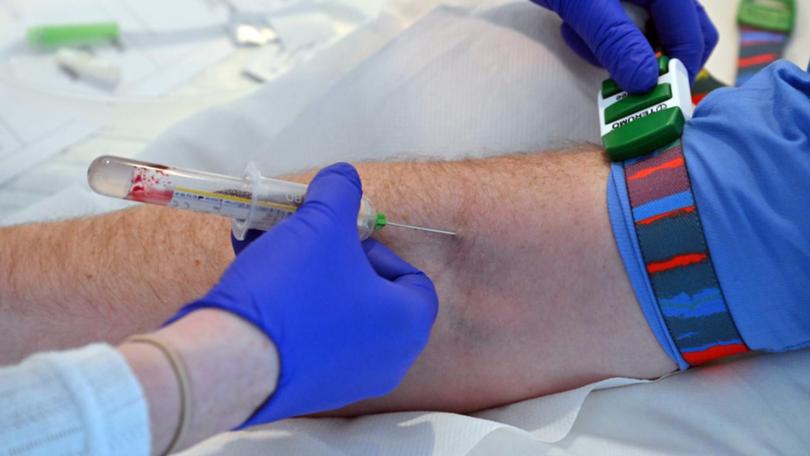‘Heat seeking missile’: World-first treatment boosting prostate cancer survival rates
A ground-breaking treatment for cancer described by doctors as being like a ‘heat seeking missile’ has boosted survival rates and quality of life for patients with fewer side effects.

Firefighter Patrick Fitzell was the picture of health until the day he started having trouble going to the bathroom.
His wife convinced him to go for a “man check” which eventually led to a prostate cancer diagnosis, a move from New Zealand to Australia and a place in a world-first medical trial.
The groundbreaking treatment he received has been shown to boost survival rates and quality of life for patients with a poor prognosis.
Sign up to The Nightly's newsletters.
Get the first look at the digital newspaper, curated daily stories and breaking headlines delivered to your inbox.
By continuing you agree to our Terms and Privacy Policy.“I’ve been very, very lucky to have had these trials and I’m still here today,” Mr Fitzell told AAP.
“I’m sure I wouldn’t have had these opportunities back in New Zealand and I’m so grateful to be able to be here, still alive today.”
Mr Fitzell was among 162 patients with castration-resistant prostate cancer who trialled combination treatment in 15 Australian hospitals.
The Australian and New Zealand Urogenital and Prostate Cancer Trials Group pioneered the treatment on patients who had an estimated three in 10 chance of surviving to five years.
It involves radiation and hormone treatment, with the findings published in the respected journal The Lancet Oncology.
Medical oncologist and researcher Andrew Weickhardt, from the Olivia Newton-John Cancer and Wellness Centre in Melbourne, said the treatment led to three significant findings.
They are boosting survival rates, improving patients’ quality of life and reducing side effects by using a process known as adaptive dosing, which involves regular scans that guide how much radiation a person needs.
Dr Weickhardt likened it to a “heat-seeking missile” that targets specific prostate cancer cells in patients who might only have months or years to live.
“What’s so significant about this trial is that it’s using the smart radiation before chemotherapy and showing an improvement in health-related outcomes - leading to less fatigue and pain in the patients that receive this as compared to the patients who just receive the standard treatment,” the associate professor said.
Researchers will now focus on using the combined therapy early after diagnosis and expanding work on adaptive dosing.
“Trials such as this provide reassurance to men with recurrent prostate cancer who have undergone treatment with either surgery or radiation that there are new treatments that can reduce side effects and improve their quality of life compared to chemotherapy,” Dr Weickhardt said.
Many men were reluctant to raise prostate health with their doctor but Mr Fitzell said it was worth having the conversation if they noted something unusual.
After his diagnosis, he spoke to 650 firefighters in NZ and seven later thanked him as they went to get checked and caught their cancer early.
“It is really important for men to get that check,” he said.
